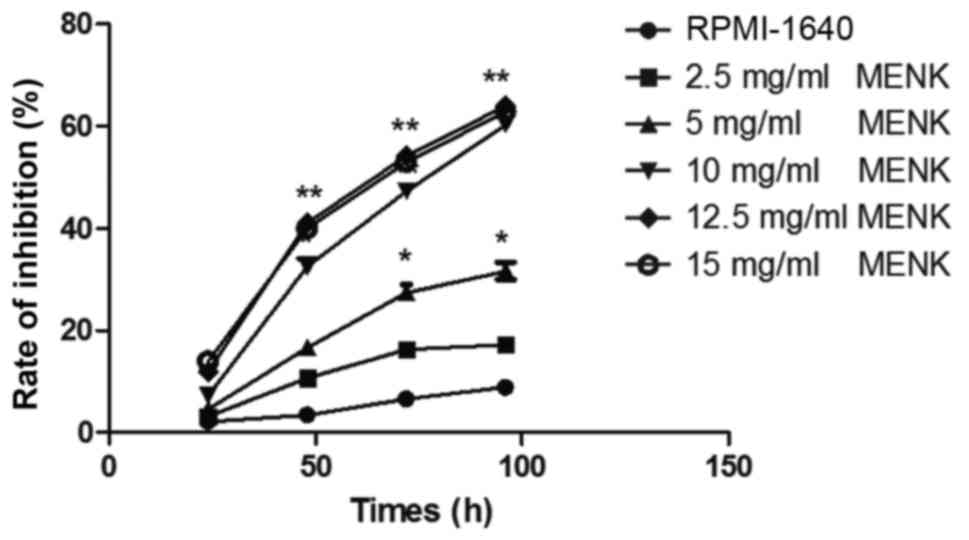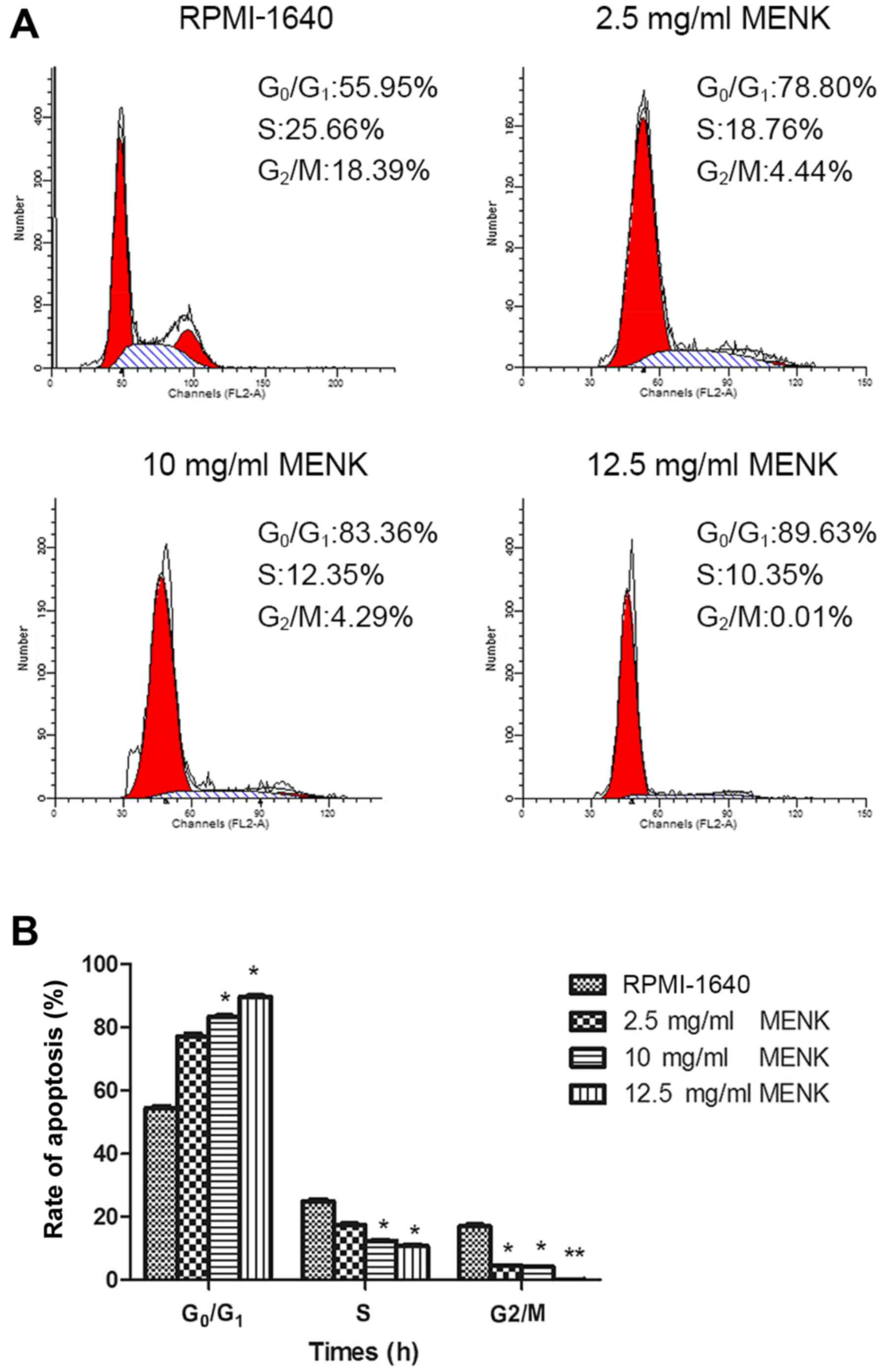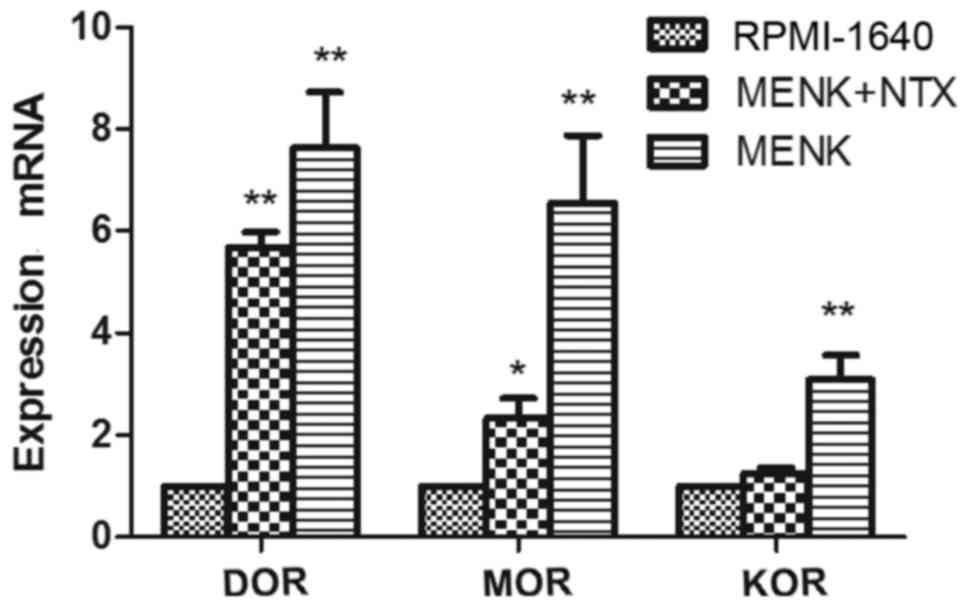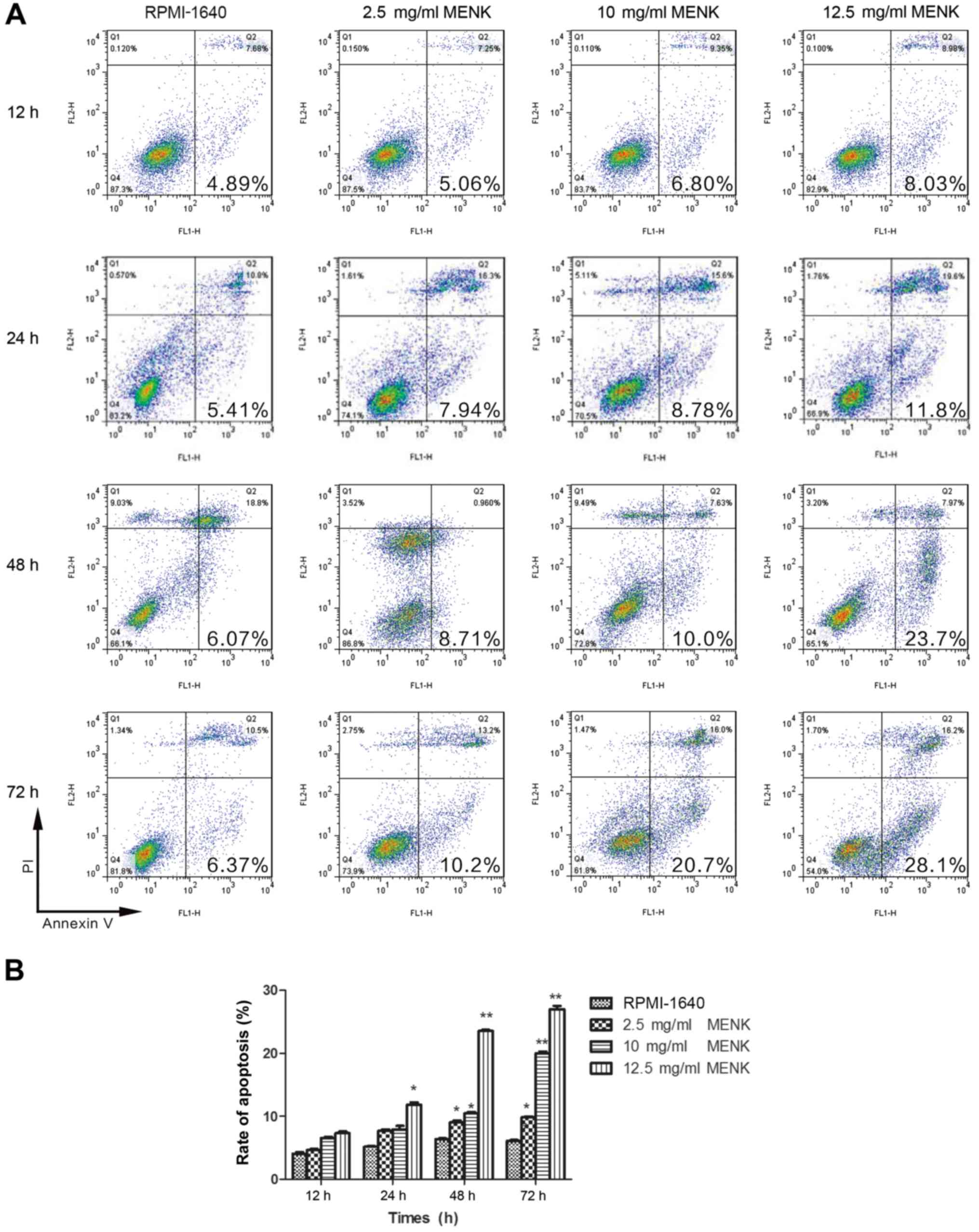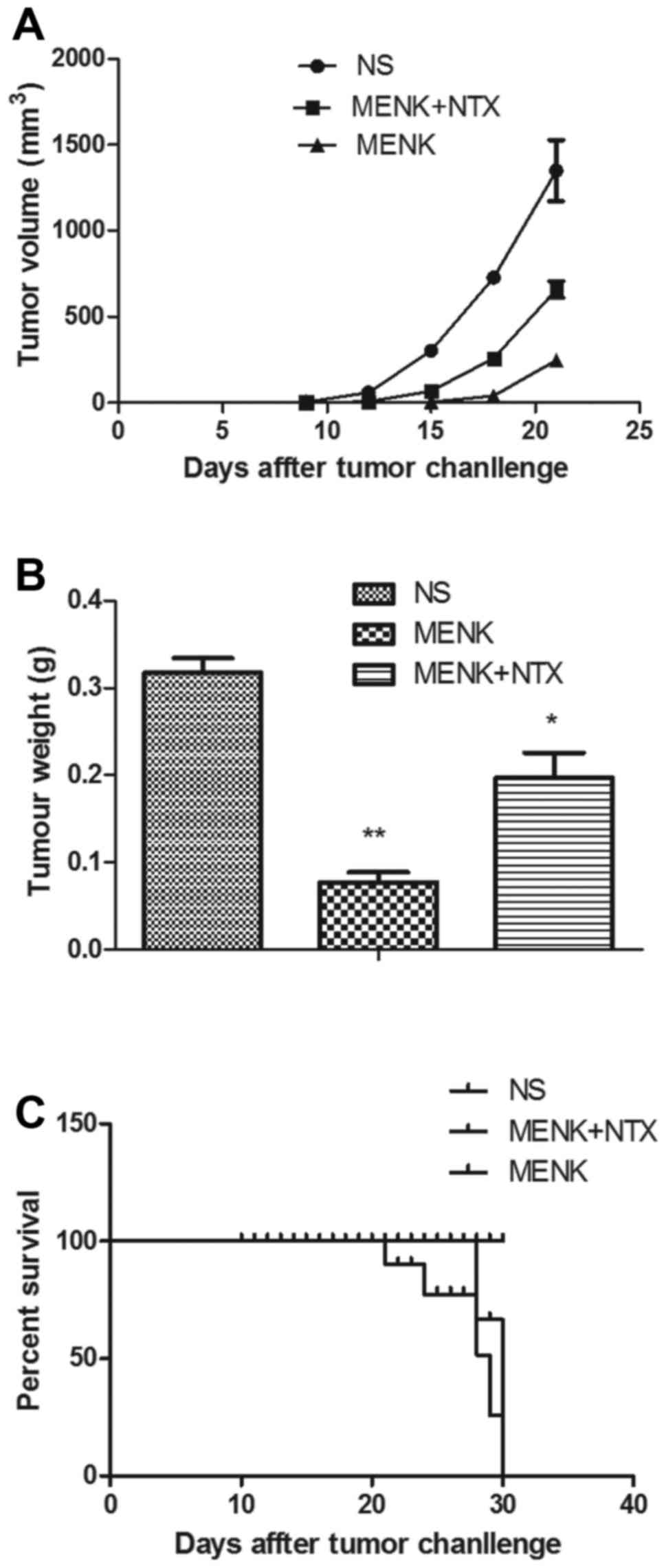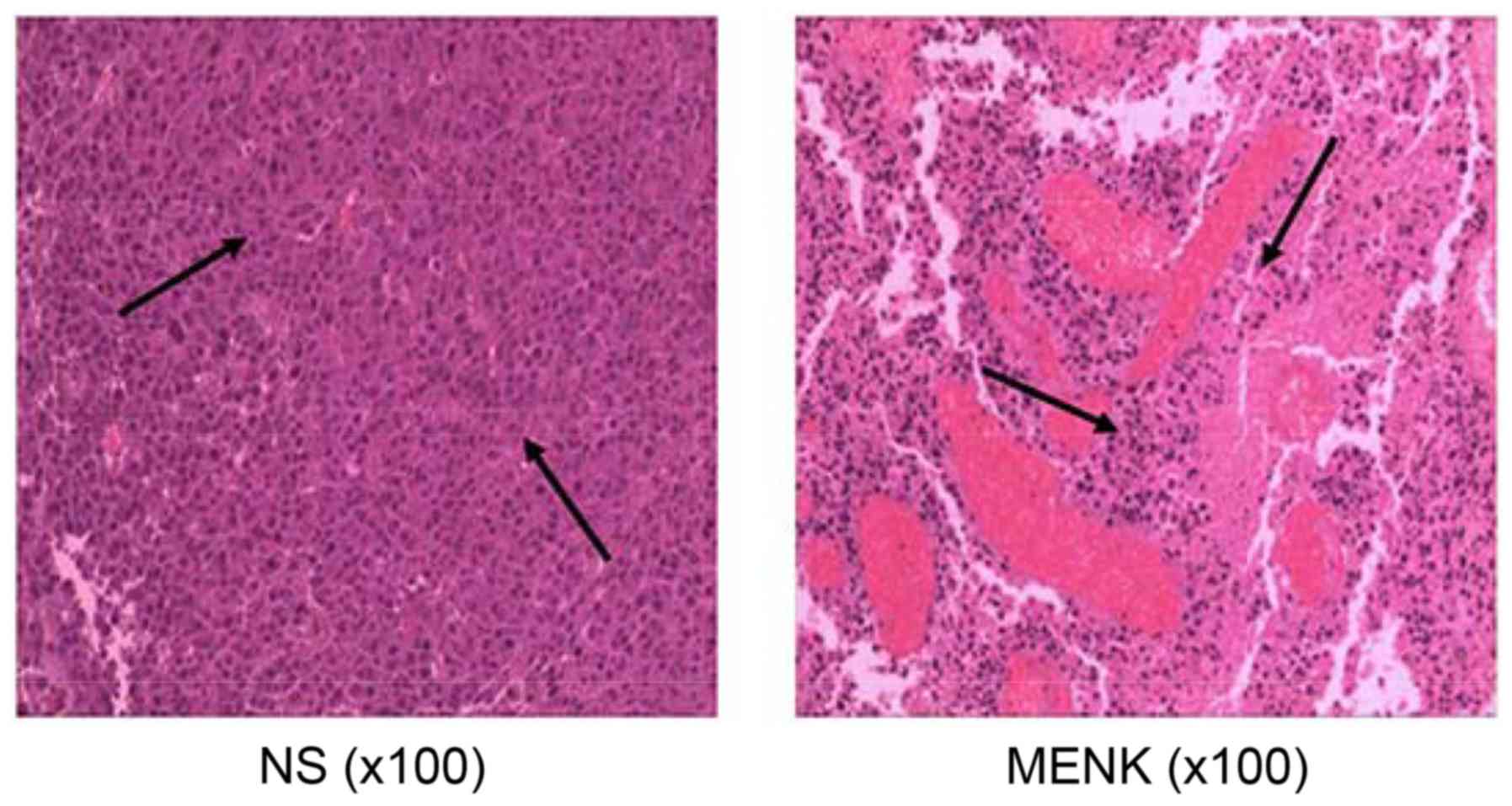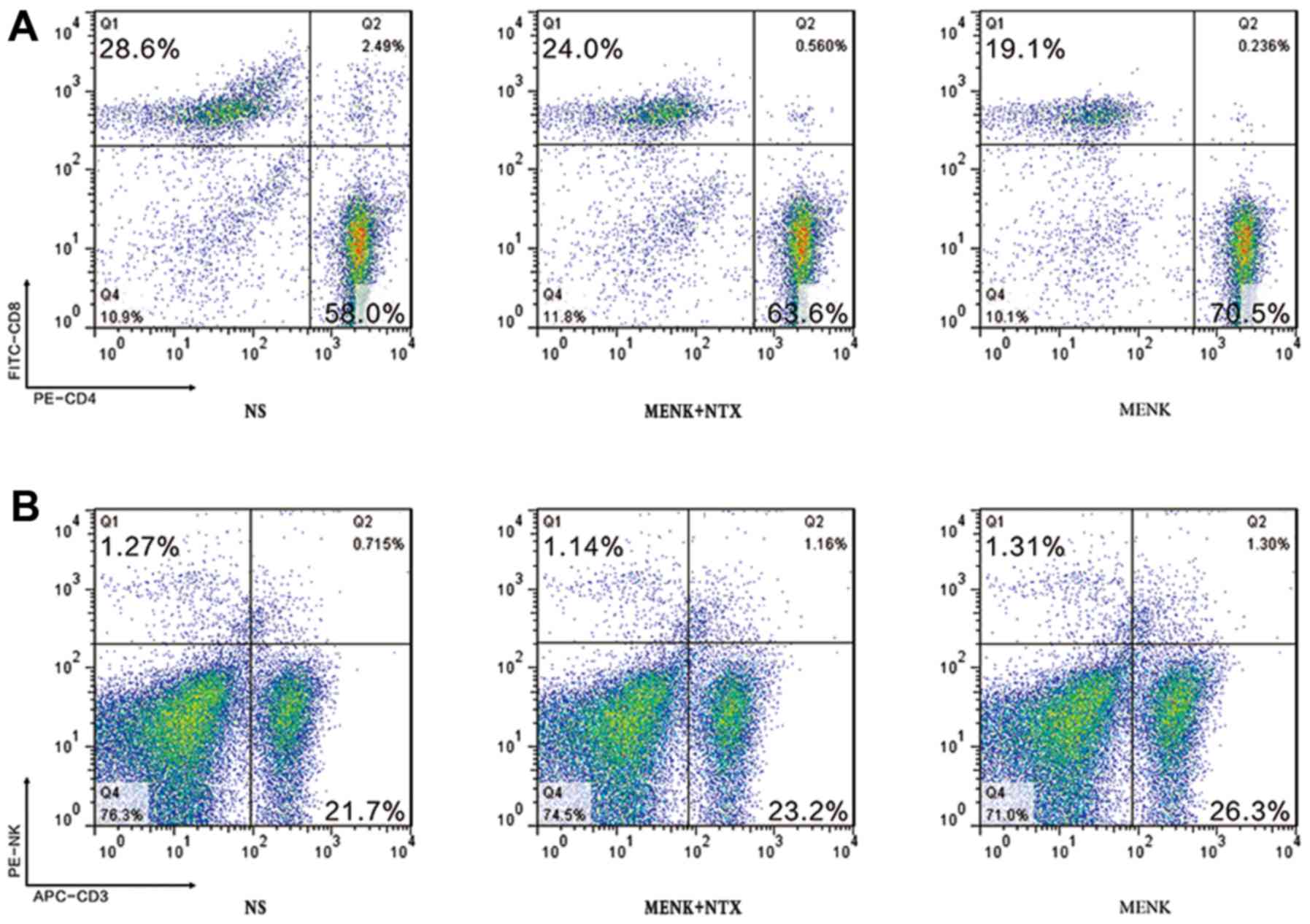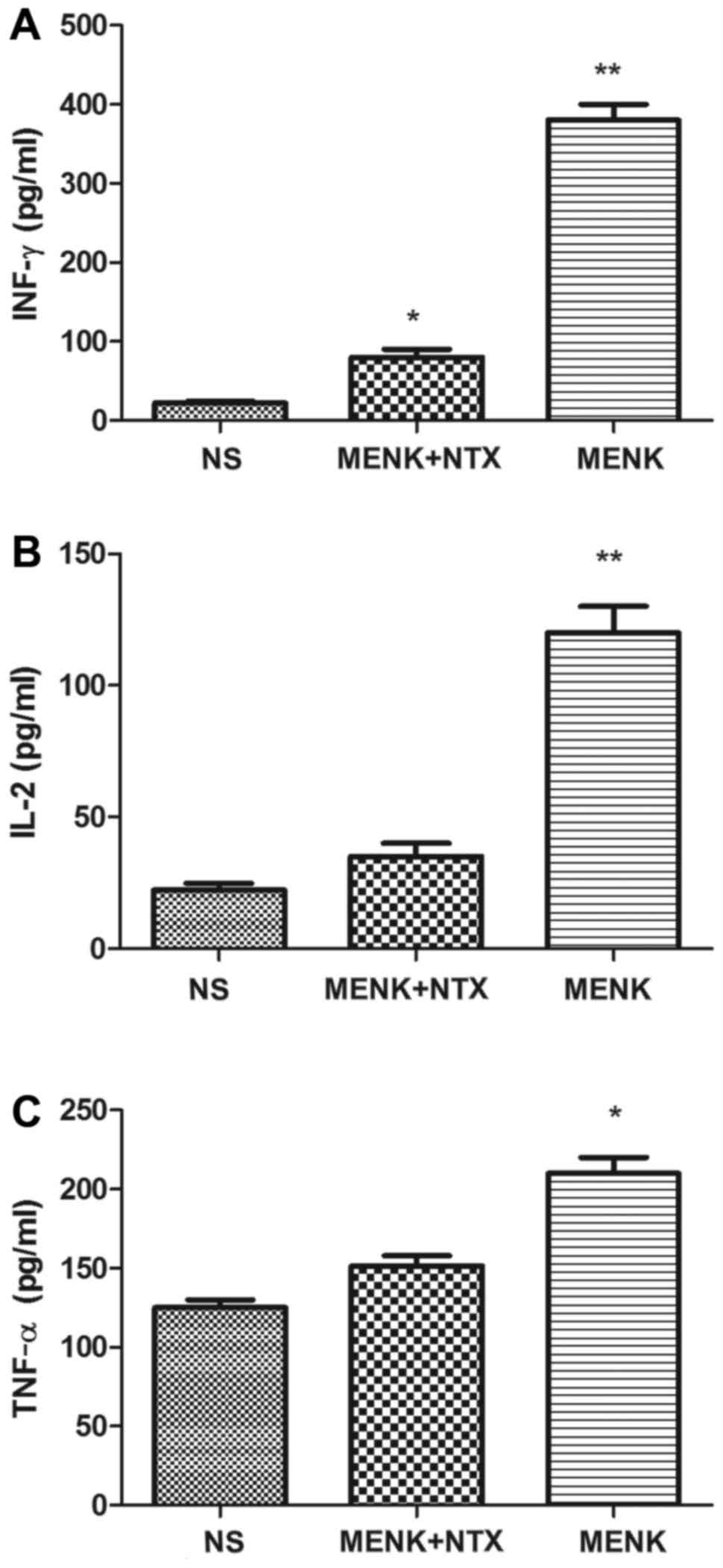|
1
|
Curtin JA, Fridlyand J, Kageshita T, Patel
HN, Busam KJ, Kutzner H, Cho KH, Aiba S, Bröcker EB, LeBoit PE, et
al: Distinct sets of genetic alterations in melanoma. N Engl J Med.
353:2135–2147. 2005. View Article : Google Scholar : PubMed/NCBI
|
|
2
|
Zagon IS, Sassani JW and McLaughlin PJ:
Reepithelialization of the human cornea is regulated by endogenous
opioids. Invest Ophthalmol Vis Sci. 41:73–81. 2000.PubMed/NCBI
|
|
3
|
Zagon IS, Sassani JW, Wu Y and McLaughlin
PJ: The autocrine derivation of the opioid growth factor,
[Met5]-enkephalin, in ocular surface epithelium. Brain
Res. 792:72–78. 1998. View Article : Google Scholar : PubMed/NCBI
|
|
4
|
Wolf IH, Richtig E, Kopera D and Kerl H:
Locoregional cutaneous metastases of malignant melanoma and their
management. Dermatol Surg. 30:244–247. 2004. View Article : Google Scholar : PubMed/NCBI
|
|
5
|
Zagon IS and McLaughlin PJ: Naltrexone
modulates tumor response in mice with neuroblastoma. Science.
221:671–673. 1983. View Article : Google Scholar : PubMed/NCBI
|
|
6
|
Zagon IS and McLaughlin PJ: Opioid
antagonists inhibit the growth of metastatic murine neuroblastoma.
Cancer Lett. 21:89–94. 1983. View Article : Google Scholar : PubMed/NCBI
|
|
7
|
Zagon IS, Rhodes RE and McLaughlin PJ:
Distribution of enkephalin immunoreactivity in germinative cells of
developing rat cerebellum. Science. 227:1049–1051. 1985. View Article : Google Scholar : PubMed/NCBI
|
|
8
|
Zagon IS and McLaughlin PJ: Endogenous
opioid systems regulate cell proliferation in the developing rat
brain. Brain Res. 412:68–72. 1987. View Article : Google Scholar : PubMed/NCBI
|
|
9
|
Zagon IS and McLaughlin PJ: Endogenous
opioid systems, stress, and cancer. In: Enkephalins-Endorphins:
Stress and the Immune SystemPlotnikoff NP, Murgo AJ, Faith RE and
Good RA: Plenum Press; New York: pp. 81–100. 1986
|
|
10
|
Zagon IS, McLaughlin PJ, Goodman SR and
Rhodes RE: Opioid receptors and endogenous opioids in diverse human
and animal cancers. J Natl Cancer Inst. 79:1059–1065.
1987.PubMed/NCBI
|
|
11
|
Zagon IS and McLaughlin P: Endogenous
opioids and the growth regulation of a neural tumor. Life Sci.
43:1313–1318. 1988. View Article : Google Scholar : PubMed/NCBI
|
|
12
|
Zagon IS and McLaughlin PJ: Endogenous
opioid systems regulate growth of neural tumor cells in culture.
Brain Res. 490:14–25. 1989. View Article : Google Scholar : PubMed/NCBI
|
|
13
|
Hauser KF, McLaughlin PJ and Zagon IS:
Endogenous opioids regulate dendritic growth and spine formation in
developing rat brain. Brain Res. 416:157–161. 1987. View Article : Google Scholar : PubMed/NCBI
|
|
14
|
McLaughlin PJ and Zagon IS: Modulation of
human neuroblastoma transplanted into nude mice by endogenous
opioid systems. Life Sci. 41:1465–1472. 1987. View Article : Google Scholar : PubMed/NCBI
|
|
15
|
Zagon IS, Wu Y and McLaughlin PJ: Opioid
growth factor inhibits DNA synthesis in mouse tongue epithelium in
a circadian rhythm-dependent manner. Am J Physiol. 267:R645–R652.
1994.PubMed/NCBI
|
|
16
|
Zagon IS and McLaughlin PJ: An opioid
growth factor regulates the replication of microorganisms. Life
Sci. 50:1179–1187. 1992. View Article : Google Scholar : PubMed/NCBI
|
|
17
|
Shan F, Xia Y, Wang N, Meng J, Lu C, Meng
Y and Plotnikoff NP: Functional modulation of the pathway between
dendritic cells (DCs) and CD4+T cells by the
neuropeptide: Methionine enkephalin (MENK). Peptides. 32:929–937.
2011. View Article : Google Scholar : PubMed/NCBI
|
|
18
|
Quidville V, Segond N, Pidoux E, Cohen R,
Jullienne A and Lausson S: Tumor growth inhibition by indomethacin
in a mouse model of human medullary thyroid cancer: Implication of
cyclooxygenases and 15-hydroxyprostaglandin dehydrogenase.
Endocrinology. 145:2561–2571. 2004. View Article : Google Scholar : PubMed/NCBI
|
|
19
|
Livak KJ and Schmittgen TD: Analysis of
relative gene expression data using real-time quantitative PCR and
the 2−ΔΔCT method. Methods. 25:402–408. 2001.
View Article : Google Scholar : PubMed/NCBI
|
|
20
|
El-Gazzar A, Perco P, Eckelhart E, Anees
M, Sexl V, Mayer B, Liu Y, Mikulits W, Horvat R, Pangerl T, et al:
Natural immunity enhances the activity of a DR5 agonistic antibody
and carboplatin in the treatment of ovarian cancer. Mol Cancer
Ther. 9:1007–1018. 2010. View Article : Google Scholar : PubMed/NCBI
|
|
21
|
Wang Q, Gao X, Yuan Z, Wang Z, Meng Y, Cao
Y, Plotnikoff NP, Griffin N and Shan F: Methionine enkephalin
(MENK) improves lymphocyte subpopulations in human peripheral blood
of 50 cancer patients by inhibiting regulatory T cells (Tregs). Hum
Vaccin Immunother. 10:1836–1840. 2014. View
Article : Google Scholar : PubMed/NCBI
|
|
22
|
Li W, Chen W, Herberman RB, Plotnikoff NP,
Youkilis G, Griffin N, Wang E, Lu C and Shan F: Immunotherapy of
cancer via mediation of cytotoxic T lymphocytes by methionine
enkephalin (MENK). Cancer Lett. 344:212–222. 2014. View Article : Google Scholar : PubMed/NCBI
|
|
23
|
Sassani JW, McLaughlin PJ and Zagon IS:
The Yin and Yang of the Opioid Growth Regulatory System: Focus on
Diabetes - The Lorenz E. Zimmerman Tribute Lecture. J Diabetes Res.
2016:97037292016. View Article : Google Scholar : PubMed/NCBI
|
|
24
|
McLaughlin PJ, McHugh DP, Magister MJ and
Zagon IS: Endogenous opioid inhibition of proliferation of T and B
cell subpopulations in response to immunization for experimental
autoimmune encephalomyelitis. BMC Immunol. 16:242015. View Article : Google Scholar : PubMed/NCBI
|
|
25
|
Zagon IS, Donahue RN and McLaughlin PJ:
Opioid growth factor-opioid growth factor receptor axis is a
physiological determinant of cell proliferation in diverse human
cancers. Am J Physiol Regul Integr Comp Physiol. 297:R1154–R1161.
2009. View Article : Google Scholar : PubMed/NCBI
|
|
26
|
Hua H, Lu C, Li W, Meng J, Wang D,
Plotnikoff NP, Wang E and Shan F: Comparison of stimulating effect
on subpopulations of lymphocytes in human peripheral blood by
methionine enkephalin with IL-2 and IFN-γ. Hum Vaccin Immunother.
8:1082–1089. 2012. View
Article : Google Scholar : PubMed/NCBI
|
|
27
|
Wang DM, Wang GC, Yang J, Plotnikoff NP,
Griffin N, Han YM, Qi RQ, Gao XH and Shan FP: Inhibition of the
growth of human melanoma cells by methionine enkephalin. Mol Med
Rep. 14:5521–5527. 2016. View Article : Google Scholar : PubMed/NCBI
|
|
28
|
Xue M, Sun H, Cao Y, Wang G, Meng Y, Wang
D and Hong Y: Mulberry leaf polysaccharides modulate murine
bone-marrow-derived dendritic cell maturation. Hum Vaccin
Immunother. 11:946–950. 2015. View Article : Google Scholar : PubMed/NCBI
|
|
29
|
Wang H, Czura CJ and Tracey KJ: Tumor
necrosis factorThe Cytokine Handbook. 4th. Thomson AW and Lotze MT:
Academic Press; London, UK: pp. 837–860. 2003, View Article : Google Scholar
|
|
30
|
Motzer RJ, Hudes GR, Curti BD, McDermott
DF, Escudier BJ, Negrier S, Duclos B, Moore L, O'Toole T, Boni JP,
et al: Phase I/II trial of temsirolimus combined with interferon
alfa for advanced renal cell carcinoma. J Clin Oncol. 25:3958–3964.
2007. View Article : Google Scholar : PubMed/NCBI
|
|
31
|
Shi VY, Tran K, Patel F, Leventhal J,
Konia T, Fung MA, Wilken R, Garcia MS, Fitzmaurice SD, Joo J, et
al: 100% Complete response rate in patients with cutaneous
metastatic melanoma treated with intralesional interleukin (IL)-2,
imiquimod, and topical retinoid combination therapy: Results of a
case series. J Am Acad Dermatol. 73:645–654. 2015. View Article : Google Scholar : PubMed/NCBI
|
|
32
|
Leventhal JS, Odell ID, Imaeda S,
Maverakis E and King BA: Treatment of melanoma in-transit
metastases with combination intralesional interleukin-2, topical
imiquimod, and tretinoin 0.1% cream. JAAD Case Rep. 2:114–116.
2016. View Article : Google Scholar : PubMed/NCBI
|
|
33
|
Fletcher JM, Lalor SJ, Sweeney CM, Tubridy
N and Mills KH: T cells in multiple sclerosis and experimental
autoimmune encephalomyelitis. Clin Exp Immunol. 162:1–11. 2010.
View Article : Google Scholar : PubMed/NCBI
|
|
34
|
Kebir H, Kreymborg K, Ifergan I,
Dodelet-Devillers A, Cayrol R, Bernard M, Giuliani F, Arbour N,
Becher B and Prat A: Human TH17 lymphocytes promote blood-brain
barrier disruption and central nervous system inflammation. Nat
Med. 13:1173–1175. 2007. View
Article : Google Scholar : PubMed/NCBI
|
|
35
|
Weir C, McNeill A, Hook S, Harvie M, La
Flamme AC, Le Gros G and Bäckström BT: Critical role of
preproenkephalin in experimental autoimmune encephalomyelitis. J
Neuroimmunol. 179:18–25. 2006. View Article : Google Scholar : PubMed/NCBI
|















